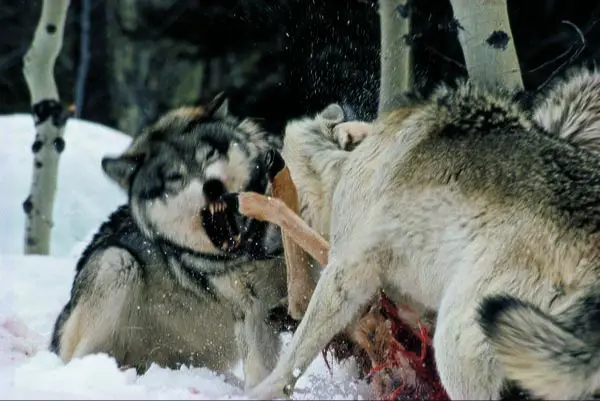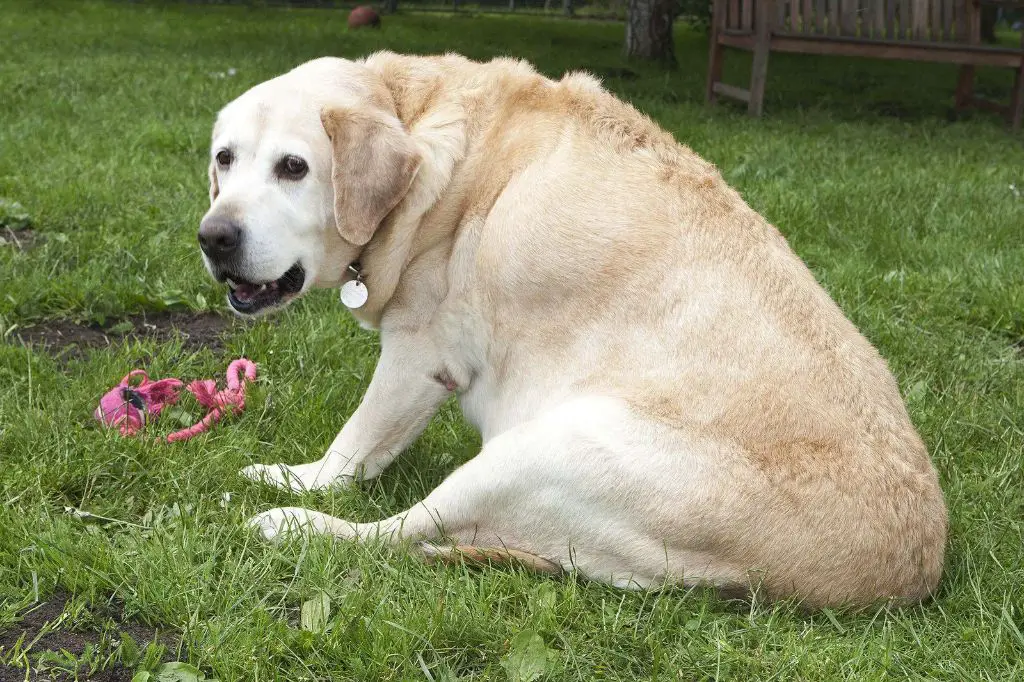Appetite Regulation in Dogs
Most dogs seem constantly interested in food and never quite satisfied. This obsession with eating is partly rooted in their biology. Dogs have genetic mutations that lead to always feeling hungry. Specifically, they lack some of the key hormone receptors that regulate appetite in humans and other mammals. The hormone leptin plays an important role in signalling fullness and satiety to the brain. However, dogs have mutations in the gene for the leptin receptor, meaning they don’t experience the feelings of satiation when leptin is released after eating. This results in a nearly insatiable appetite at all times, as the dog’s brain never receives the signal that the stomach is full.
Scent Hounds Are Bred for Food Drive
Scent hounds like beagles and basset hounds were originally bred to use their powerful sense of smell to locate and follow food sources while hunting. Their superior olfactory capabilities allowed them to pick up scents from great distances that would lead them to potential prey. This strong food drive was a desirable trait when employing scent hounds for hunting purposes. Their ability to catch a whiff of food and persistently track it down made them very effective at finding and flushing out small game for hunters.
Centuries of selectively breeding scent hounds for this talent means modern-day beagles and basset hounds still possess an exceptionally strong food motivation. Their genes compel them to be highly food-obsessed and constantly sniffing out sustenance. This innate food drive is so deeply embedded in scent hounds that they will eat as much as they can find. Without proper training and management from owners, their genetically enhanced sense of smell and appetite can lead scent hounds to overeat.
Dogs Evolved as Scavengers

Unlike wild cats that rely on hunting to survive, dogs evolved with a drive to scavenge as well as hunt for food. While felines like lions and tigers kill prey they find on hunting excursions, canines like wolves have retained more flexible appetites. Wolves will actively hunt, but they have also long survived by scavenging on carcasses left behind by other kills. This gave canines an evolutionary edge to take advantage of any discovered food source, not just fresh prey.
This scavenging history bred an opportunistic nature into dogs’ DNA. Unlike cats that only eat what they kill themselves, dogs jump at any chance for food. Their evolutionary drive compels them to eat whatever they find rather than waiting to kill a new meal. This provides dogs with a strong, constant motivation to seek out any food sources in their environment. It’s a key reason our canine companions seem obsessed with food and treats.
Training Uses Food as Reinforcement
Food is commonly used in training as a primary reinforcer and reward. This conditions dogs to highly value food treats. When owners regularly give dogs treats during training, the dog begins to associate obeying commands with getting delicious food. Soon, the food becomes a powerful motivator for the dog to perform the desired behaviors.
This use of treats in dog training taps into innate scavenging instincts. In the wild, canines must work to find food through hunting and foraging behaviors. Modern pet dogs have most of their food delivered in a bowl, so training treats give them an outlet to “work” for food. The use of food-based positive reinforcement means the dog sees obeying commands as a way to earn food.
While using treats in training is very effective, it can also increase a dog’s focus on food. Once a dog learns to do tricks and obey orders for tasty treats, they may start demanding foods at other times. This is why it’s important to phase out giving treats constantly as the dog learns. With patience and consistency, dogs can be trained to obey without expecting a food reward every time.
Owners Often Overfeed
Many dog owners make the mistake of free-feeding their pets, where the food bowl is perpetually full. While free-feeding works for some dogs, most will overeat when presented with an endless buffet. Free-feeding deprives dogs of structure and predictability, allowing them to graze endlessly. This leads to overeating, boredom, and obesity in many dogs. Free-feeders should instead try scheduled, portion-controlled feedings at set times each day.

Another major culprit is people food and treats. Well-meaning owners often cave to begging and overindulge their dogs with table scraps, leftovers, and junk food. These excess, unhealthy calories quickly add up, especially when combined with scheduled feedings. Owners should set limits for treats and avoid feeding table scraps. While it’s natural to want to indulge beloved pets, excessive people food is unhealthy for dogs and promotes unwanted weight gain and begging behaviors.
Lack of Foraging Opportunities
One reason dogs seem obsessed with food is their strong food drive that gets little outlet in the human-centered, modern domestic environment. In the wild, dogs’ ancestors and modern wolf packs must hunt and forage for most of their sustenance. This provides a natural outlet for their strong food motivation instincts. However, our domestic dogs have an abundance of readily-available food, provided in bowls by their owners. They no longer need to use their natural skills and drives to find food sources. This leaves dogs with a pent up food drive and motivation, often seeking more opportunities to satisfy those instincts.
Without hunting, scavenging and foraging for meals, our pets lack sufficient ways to engage their natural food drive. Since their meals are handed to them, it’s little wonder many dogs act obsessed with food. Providing more interactive feeding methods, like puzzle toys and snuffle mats, can help engage your dog’s innate foraging instincts and be a mentally stimulating activity.
Boredom and Stress Can Lead to Overeating
Dogs who lack sufficient physical and mental stimulation are more likely to develop obsessive food-seeking behaviors. Without adequate outlets to expend their energy, dogs can easily become bored. This boredom causes dogs to seek stimulation through other means – and eating is often the easiest way for a dog to occupy itself. The act of chewing and tasting food provides sensory input that relieves boredom.
Stress can also trigger dogs to eat more. Chewing and swallowing food releases feel-good neurotransmitters in the brain that have a calming effect. Eating becomes a coping mechanism for anxious or stressed dogs. Providing enrichment through regular exercise, playtime, training and puzzle toys is important to keep your dog engaged and prevent boredom eating and stress eating.
Lack of activity and under-stimulation often go hand in hand with canine obesity. Ensuring your dog receives adequate physical and mental exercise appropriate for their breed, age and energy level is key to curbing overeating. A tired dog is a dog less likely to obsess over food or overindulge their appetites.
Separation Anxiety Fueling Food Focus
Dogs with separation anxiety may overeat while their owner is away or out of sight. This is because eating serves as a displacement behavior for some dogs. When a dog is feeling stressed or anxious due to being left alone, they may try to soothe themselves by focusing their energy on food instead. The act of eating provides distraction and comfort. It can also release pleasurable hormones that calm and relax the dog.
Some signs that separation anxiety may be fueling your dog’s food drive and overeating include if your dog only overeats when left alone, if they mostly target high-value treats like meat and cheese, if they eat very quickly, and if overeating is accompanied by other displacement behaviors like pacing, barking, or destruction. The key is to address the root cause of separation anxiety through training, increased exercise, toys and puzzles for mental stimulation, and maintaining a predictable routine when leaving and returning.
Certain Breeds Prone to Obesity
Some dog breeds seem to be especially prone to obesity due to their strong food drive and motivation. Labrador Retrievers in particular are well known for their tendency to overeat and gain weight. This breed has been selectively developed to have a strong appetite, as they were originally used for retrieving downed fowl during hunts. Their genetics drive them to eat heartily whenever food is available.

Other breeds that are prone to obesity include Cocker Spaniels, Beagles, Basset Hounds, Dachshunds, Corgis, Pugs, Boxers, Cavalier King Charles Spaniels, Golden Retrievers, and Shetland Sheepdogs. These dogs all share genetic traits that give them an exceptionally strong food motivation. If not properly monitored and managed, their food obsession can quickly lead to packing on excess pounds.
For these breeds, it’s especially important for owners to measure out regular meals rather than free-feeding, use puzzle toys and games for mental stimulation, and provide plenty of exercise. Giving them appropriate outlets for their genetically ingrained food drive allows them to maintain a healthy weight.
How to Manage Your Dog’s Food Drive
If your dog seems overly obsessed with food, there are some steps you can take to help manage that impulse and prevent obesity:
Feed scheduled meals instead of free-feeding – Free-feeding allows your dog to eat as much as they want whenever they want. This makes it harder for them to self-regulate. Feeding scheduled meals at the same times each day will help your dog learn when to expect food.
Use food puzzles/chew toys to make them ‘work’ for food – Giving your dog their kibble in a food puzzle or stuffed in a chew toy creates mental and physical stimulation. Working for their meals taps into their natural foraging instincts.

Provide enough exercise and enrichment – Dogs focused on food may be bored or under-stimulated. Make sure your dog gets adequate physical and mental exercise every day. Take them on engaging walks, play fetch, or try training games. This helps satisfy them beyond just eating.